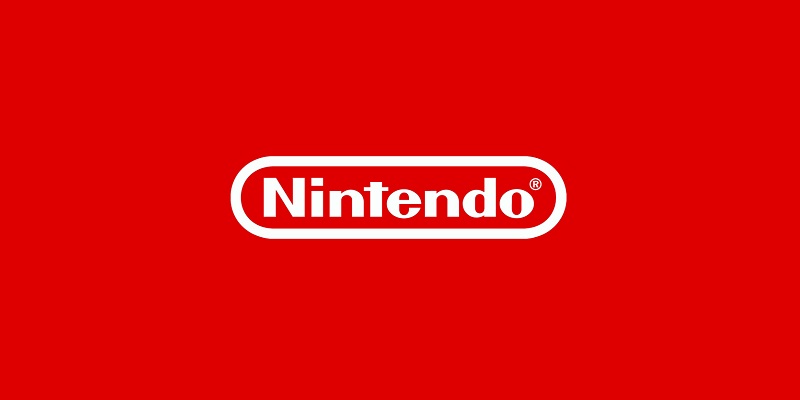Nintendo Financials (November, 2024): results and highlights, Investors Briefing, Q&A
Nintendo Financials – Results
Today, Nintendo shared its latest financial results, covering the period ended September 30th, 2024 (April 1st 2024 to September 30th 2024). You will find all the details on these pages:
- Consolidated Financial Highlights, with consolidated operating results, the forecast for the current Fiscal Year, Nintendo comments, sales information (regional breakdown, digital sales), sales data and forecast, and more
- Financial Results Explanatory Material, with lots of additional sales data, the list of million-sellers this Fiscal Year, the upcoming releases planning, and more
Some highlights:
[ngg src=”galleries” ids=”29555″ display=”basic_thumbnail” order_by=”filename”]- Paper Mario: The Thousand-Year Door sold 1.94 million units during the first two quarters (+150,000 units during Q2 of the current Fiscal Year);
- Luigi’s Mansion 2 HD sold 1.57 million units during the first two quarters (+380,000 units during Q2 of the current Fiscal Year);
- The Legend of Zelda: Echoes of Wisdom is off to a great start with 2.58 million units sold during the first 5 days;
- Mario Kart 8 Deluxe sold 2.31 million units during the first two quarters of the current Fiscal Year, which brings total sales to 64.27 million units.
- During the first two quarters of the current Fiscal Year, 9 games sold over 1 million units (including 3 titles from third-party publishers)
- Nintendo Switch (Hardware) sales: 4.72 million units sold during Q1+2 (+2.62 million units during Q2 alone), -31% Year on Year. Sales were higher during Q2 in part due to the release of the Nintendo Switch Lite: Hyrule Edition and Hardware bundles;
- Nintendo Switch (Software) sales: 70.28 million units sold during Q1+2 (+39.64 million units during Q2 alone), -27.6 Year on Year;
- Digital sales: 159.9 billion Yen (-26.5% Year on Year), mainly due to a decrease in sales of the digital versions of retail games;
- Nintendo Switch Online sales were stable during Q1+2;
- Mobile and IP-related business: 31.2 billion Yen (-43.3% Year on Year), due to a decrease in revenue related to the Super Mario Bros. Movie.
- Nintendo Switch sales (both Hardware and Software) were below initial expectations during Q1 and 2, though the console still sees high levels of engagement;
- The forecast for the current Fiscal Year was revised downwards.
Here’s sales data for some games (courtesy of Mazi):
- Mario Kart 8 Deluxe – 64.27M (+1.37M)
- Animal Crossing: New Horizons – 46.45M (+600K)
- Super Smash Bros. Ultimate – 35.14M (+480K)
- The Legend of Zelda: Breath of the Wild – 32.29M (+240K)
- Super Mario Odyssey – 28.50M (+290K)
- Pokémon Sword and Shield – 26.44M (+90K)
- Pokémon Scarlet and Violet – 25.69M (+400K)
- The Legend of Zelda: Tears of the Kingdom – 21.04M (+240K)
- Super Mario Party – 20.98M (+140K)
- New Super Mario Bros. U Deluxe – 17.77M (+160K)
- Nintendo Switch Sports – 14.37M (+1.26M since March 2024)
- The Legend of Zelda: Echoes of Wisdom – 2.58M
- Paper Mario: The Thousand-Year Door – 1.94M (+180K)
- Luigi’s Mansion 2 HD – 1.57M (+380K)
The following pages were also updated:
- Dedicated Video Game Sales Unit: Hardware and Software sales for Nintendo consoles
Top Selling Title Sales Units: Top 10 Software for each platforms:
- Nintendo Switch [Updated]
- Nintendo 3DS [Updated]
- Wii U [Updated]
- Nintendo DS
- Wii
Nintendo Financials – Briefing
The full transcript of the Second Quarter Financial Results Briefing is now available: click here to check it out! Here’s some highlights:
[ngg src=”galleries” ids=”29559″ display=”basic_thumbnail” order_by=”filename”]Nintendo Financials – Q&A
The transcript of the Q&A session is now available: click here to check it out!. Here’s the list of questions:
Question 1: In today’s presentation, you stated that Nintendo Switch software will be playable and Nintendo Switch Online will continue to be available on the successor to Nintendo Switch. Wouldn’t this weaken the motivation for current Nintendo Switch players to purchase the new hardware at launch? I would like to know how you will convey the unique appeal of the successor system to consumers going forward.
Question 2: Rising development costs have become an issue in the video game industry. How does Nintendo view the current situation? In addition, will Nintendo’s research and development expenses continue to increase going forward? Can you mitigate the rise in development costs by implementing some sort of measures on the hardware side?
Question 3: The launch of Nintendo Music, an application for music streaming available to Nintendo Switch Online members, will also offer an incentive for consumers who play games less frequently to join Nintendo Switch Online. Nintendo Switch Online has been positioned as a service designed to encourage users to play Nintendo Switch over the long term. But going forward, will it become a service that, like Nintendo Music, creates touch points with Nintendo IP for consumers who do not have a dedicated video game system? I’d like to know more about the direction that you are aiming for with Nintendo Switch Online.
Question 4: I read in an article about Nintendo Museum that Mr. Miyamoto gives a talk to new employees every year. What do you talk about? Also, I’d like to hear about your succession plans, from a creative standpoint. My impression from the outside is that you continue to produce hits because you are a genius. I imagine it is difficult to convey the fundamentals of game creation, so what kinds of efforts are you making? Do you think that the essence of your creative thinking is successfully passed on within the company?
Question 5: When developing new hardware, I understand that it is important to create products that are unique to Nintendo, but when a piece of hardware is too unique it can pose challenges for other software publishers to make games for that platform. When it comes to hardware development, what are you careful about when trying to strike a balance between uniqueness and ease of software development?

